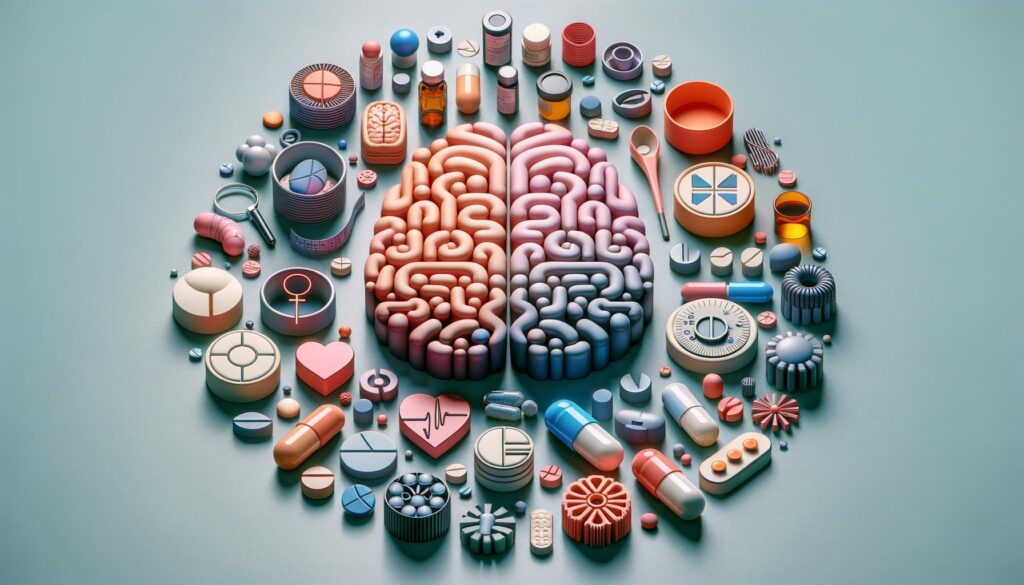Understanding Schizophrenia: Signs, Treatments, and Medication

Identifying the Signs of Schizophrenia
Recognizing the signs of schizophrenia early can be crucial in managing the disorder effectively. Schizophrenia often manifests in the late teenage years or early adulthood and affects a person’s thinking, feeling, and behavior. Common symptoms include delusions, hallucinations, and disorganized thinking. Delusions involve false beliefs that are not grounded in reality; for example, believing that one is being watched or that they have extraordinary abilities. Hallucinations, often in the form of hearing voices, are also a hallmark of the disorder. Disorganized thinking can lead to incoherent speech and difficulty concentrating.
Other symptoms of schizophrenia include:
- Reduced emotional expression or flat affect
- Withdrawal from social interactions
- Lack of motivation or interest in daily activities
- Difficulty in carrying out everyday tasks
It is crucial for individuals and their families to seek professional help if these symptoms persist, as early intervention can significantly improve outcomes.
Treatment Approaches for Schizophrenia
Effective treatment for schizophrenia typically involves a combination of therapy and medication. Psychotherapy, or talk therapy, helps individuals understand and manage their symptoms. Cognitive-behavioral therapy (CBT) is commonly used to help patients alter their thinking patterns and react more positively to challenging situations. Family therapy is also beneficial as it involves educating family members about the disorder and equipping them with strategies to support their loved ones.
Social skills training and occupational therapy can further assist individuals in developing practical skills for everyday living. These therapies aim to improve communication, social interactions, and employment capabilities, thereby enhancing the overall quality of life.
The Role of Medications in Schizophrenia Management
Medications are a cornerstone in the treatment of schizophrenia. Antipsychotic medications, which help manage symptoms such as delusions and hallucinations, are often prescribed. They work primarily by altering the brain’s chemical balance. While these medications can be highly effective, they may come with side effects, including drowsiness, weight gain, and dizziness. Therefore, it is essential for patients and healthcare providers to work closely, monitor side effects, and adjust medications as necessary.
In addition to antipsychotics, other medications may be prescribed to address symptoms of anxiety, depression, or sleep disorders that can accompany schizophrenia. Compliance with medication and proper management of side effects play a critical role in the success of schizophrenia treatment.
Challenges and Considerations in Schizophrenia Treatment
Treating schizophrenia comes with its own set of challenges. Adherence to medication can be a significant hurdle, as individuals with schizophrenia may feel that the medications are not necessary or may dislike the side effects. It is essential for healthcare providers to tailor treatment plans according to the needs of each individual, ensuring that the benefits outweigh any negative effects.
Additionally, supporting individuals through continuous follow-up and regular therapy sessions is vital. The social stigma associated with schizophrenia can also hinder people from seeking help. Community support groups and public education campaigns play an important role in reducing stigma, encouraging more people to seek treatment without fear of judgment.
Future Directions in Schizophrenia Research and Treatment
Research into schizophrenia is ongoing, with new discoveries continually emerging. Advances in neuroimaging and genetics offer hope for better understanding the underlying causes of the disorder. Future research is aimed at developing medications with fewer side effects and more effective therapies that offer prolonged relief from symptoms.
There is also a strong focus on early detection and intervention strategies. Programs that promote mental health awareness and encourage early screening in young individuals are key to mitigating the long-term impacts of schizophrenia. Embracing technological advancements in treatment, such as virtual therapy and mobile health applications, can also enhance access to care and support the management of schizophrenia.
Conclusion
Understanding schizophrenia is essential for effective management and improved outcomes. With comprehensive treatments, including medications and therapy, individuals with schizophrenia can lead fulfilling lives. Early recognition of symptoms, support from healthcare providers, and breaking down societal stigmas are critical steps toward ensuring that those affected receive the care they need. As research continues to evolve, the hope for future innovations and treatments remains promising, offering new pathways to better care and enhanced quality of life for those living with schizophrenia.
